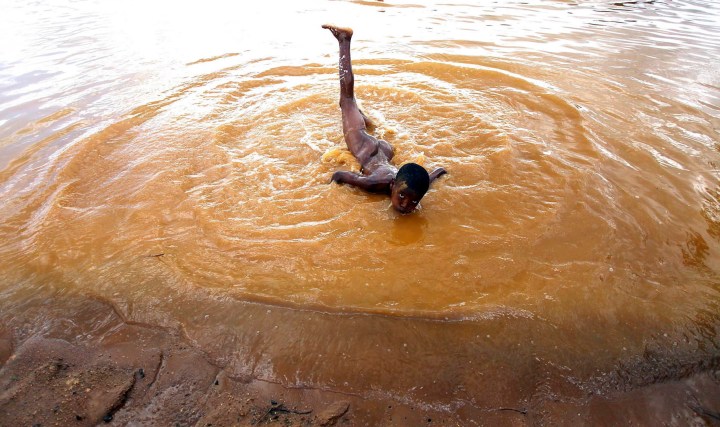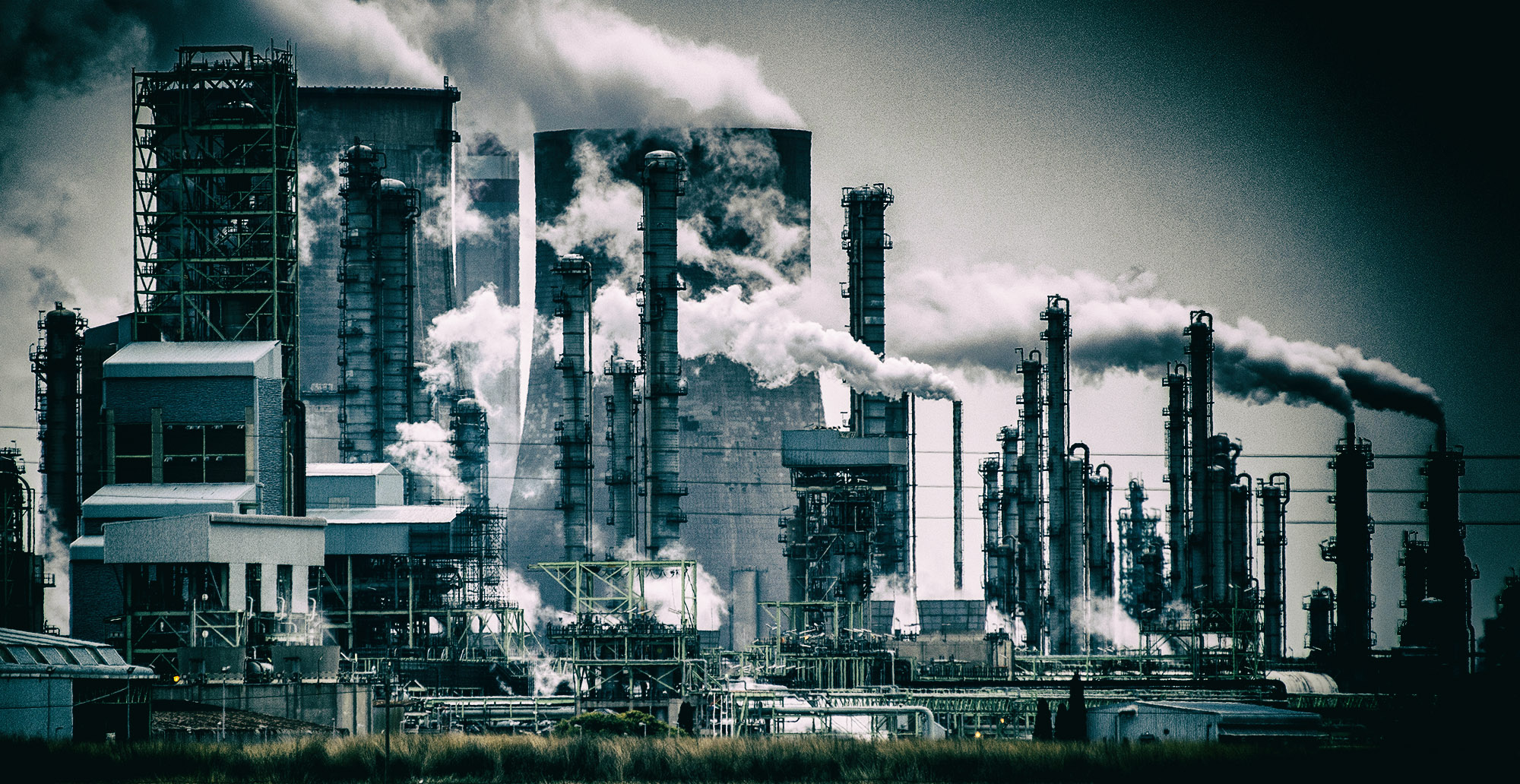Maverick Citizen Webinar
Lockdown gave the world a glimpse of a cleaner planet – now efforts to consolidate these gains must be redoubled

Covid-19 has been a rude wake-up call – another piercing alarm that climate change, environmental degradation and humans’ tyranny of natural resources have not gone away. It means our ‘what next’ question has to come with better answers.
The final webinar in the five-part “Building Solidarity in a time of Covid-19” series focused on climate change and strategies to shore up awareness, accountability and action for climate justice during a pandemic.
The session on Friday 14 August was held against the backdrop of reports of environmental benefits at a time when large parts of the world went into lockdown earlier this year. In those first weeks, there were reports of a return of wildlife to concrete jungles and a drastic reduction of carbon emissions as air spaces closed down and cars stayed off the roads.
Rampant consumption culture also virtually came to a grinding halt. While these were likely short-term gains, they still offer insights and lessons into the possibility for change if better choices can be made beyond lockdown.
Michael Clements, head of Lawyers for Human Rights’ (LHR) Environmental Rights Programme, spoke on the webinar. She pointed to multi-pronged approaches, combined with clearer strategies with an emphasis on grassroots level empowerment, as having had the most success in moving the needle on advancing the fight for environmental justice.
Clements said in recent years, LHR’s supportive work has homed in on the mining sector because of the massive impact the extractive industries have had on the environment.
“Mining’s has a historical legacy of propping up apartheid. Even with better regulation and more modernised equipment, the reality is mining has large scale operations and a very long life; a long time for things to go wrong… and mines have mostly underfunded their obligation by law to rehabilitate,” she said.

A general view of river stream that forms part of the 25 kilometer Klip river wetlands that flows through Soweto to Klip river between Lanasia and Eikenhof on the south of Johannesburg which in turn flows into the Vaal river, affects the wetlands ecosystem due to sand deposit on the river banks. (Photo: Fani Mahuntsi/Gallo Images)
Mining’s splayed footprint makes for a massive contributor to the climate crisis and associated socio-environmental concerns – from air, water and dust pollution to the impact of blasting on people’s homes and properties; to agricultural disruptions, the displacement of people and the loss of land rights. Clements also flagged the growing trend of mining companies trying for a second bite of the cherry by applying for mining licences for old mines. It’s a move already prevalent along the mining belt on the western rim of Johannesburg.
Clements said while these companies do promise clean-ups in their applications, the reality is that this will expose communities to the risks of living alongside unrehabilitated mines, coupled with fresh hazards from revived mining operations. It makes the fight for environmental justice a long term one, Clements said. She added that there have been noteworthy gains. Affected communities have become better informed and rely on stronger support from allies like LHR and other civil society bodies.
It’s empowerment that gives host mining communities a seat at negotiating tables, while giving them the back-up of litigation options. Combining strengths in this way has seen important precedents in the court, such as the 2018 Constitutional Court ruling in favour of Grace Masele (Mpane) Maledu and 36 others, who took Itereleng Bakgatla Mineral Resources to court for evicting them from a farm in North West without proper consultation or compensation.

Emissions rise from towers of the Sasol Ltd. Secunda coal-to-liquids plant in Mpumalanga, South Africa, on Monday, Dec. 23, 2019. (Photo: Waldo Swiegers/Bloomberg via Getty Images)
Clements added that the Mining Charter has also had to be drafted to be more inclusive, albeit not without a fight. Corporates are also aware they’re under greater scrutiny, which has forced them to operate with more transparency, and there’s a ripple effect for other communities to organise, mobilise and stand together.
“We are seeing a growth in well-informed mining networks and communities that are not just engaging in discussion, but are leading discussions,” she said.
Added to this, she said, is a firming up of efforts to curb corporate power through groups such as the Treaty Alliance – a global alliance of civil society organisations – that is pushing for a legally binding international treaty to address corporate human rights violations. Done right, it could be an instrument that pushes back against the muscle of foreign direct investment that is often a tainted carrot dangled in front of governments in developing nations.
For Francesca de Gasparis, executive director of the Southern African Faith Communities Environmental Institute (SAFCEI), all of these efforts are part of a strategy of building on to create smarter networks and more solidarity, especially in this time of Covid-19 distractions.
De Gasparis said a growing concern right now is the renewed push by the government to put a nuclear energy future for South Africa on the agenda. This, “while citizens have not been able to meet, raise our voices or to organise as we normally would have outside lockdown”.
But the NGO has, even in lockdown, raised the alarm against a proposal to extend the life of the Koeberg nuclear power station and has continued to pressure the government to ramp up investment in renewable energies. It has also questioned why solar water heating units, acquired by the government, have been kept in storage instead of being distributed.
“What we can do is sit in solidarity, share intel and gather to share ideas and information to keep track of complex issues, including the erosion of citizens’ rights while government keeps things like the nuclear deal behind closed doors,” she said.
De Gasparis added that SAFCEI also builds solidarity by focusing on diversity and broad inclusion, even as a faith-based organisation. She said this ensures they hear directly from more people within communities, allowing for better insights and greater resource-building.
Diversity also means giving a platform to young environmental campaigners such as Parktown Girls High School matric pupil Raeesah Noor-Mohamed, who took part in the webinar. In the mould of Swedish activist Greta Thunberg, Raessah has since the beginning of the year been boycotting classes on Fridays to hold protests outside her school.
She and a small group of classmates were, before lockdown, calling for the South African government to take the climate emergency seriously. The School Strike for Climate movement has been adopted by children around the world.
It’s a clear statement. Action, disruption and solidarity are needed among those who hope to inherit a planet that isn’t doomed. DM/MC
"Information pertaining to Covid-19, vaccines, how to control the spread of the virus and potential treatments is ever-changing. Under the South African Disaster Management Act Regulation 11(5)(c) it is prohibited to publish information through any medium with the intention to deceive people on government measures to address COVID-19. We are therefore disabling the comment section on this article in order to protect both the commenting member and ourselves from potential liability. Should you have additional information that you think we should know, please email [email protected]"






 Become an Insider
Become an Insider